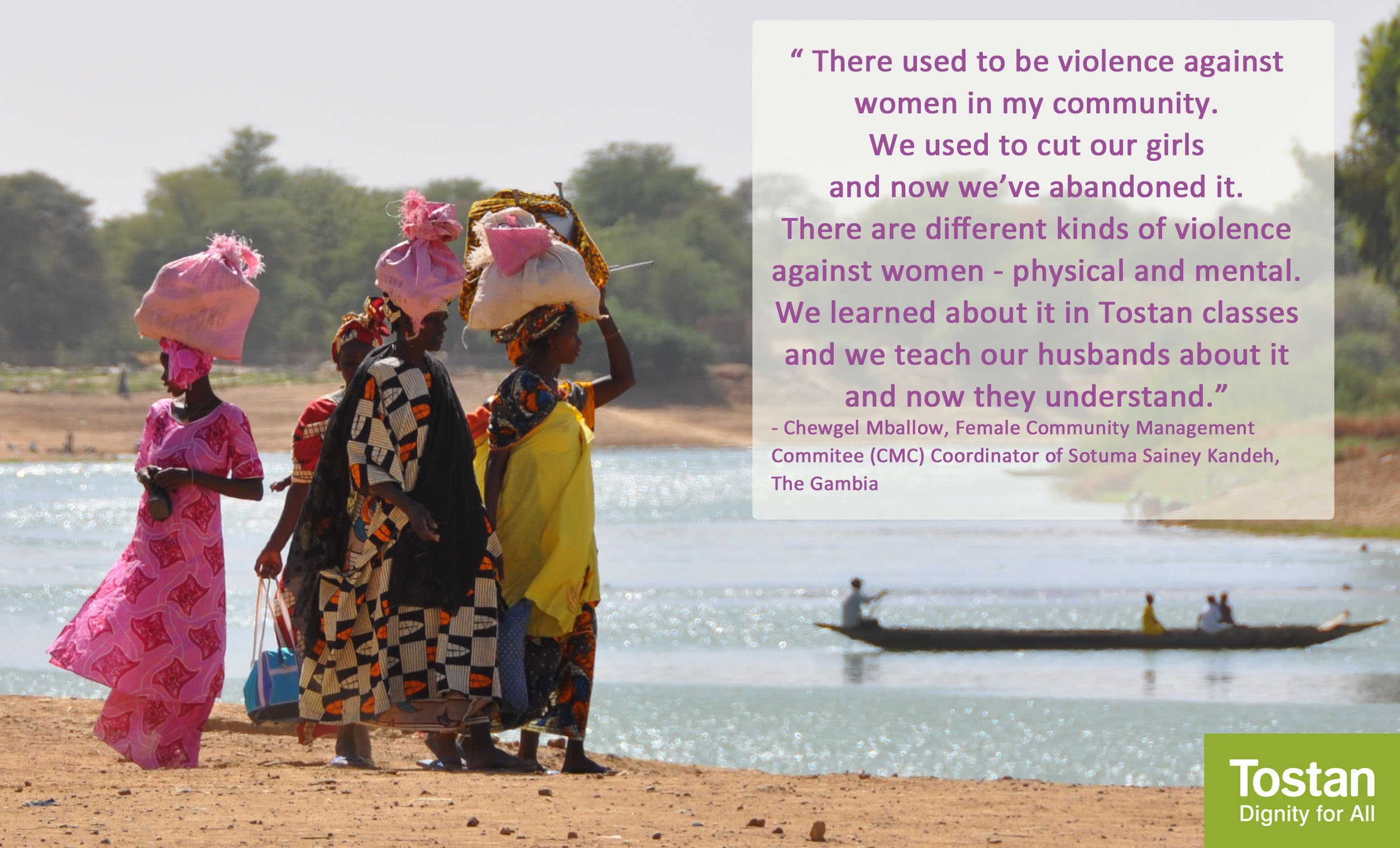Presented by Johnson & Johnson, proud partner of Global Citizen, helping people live longer, healthier, happier lives.
This article was contributed by Joya Taft-Dick, Interim Communications Director, TOSTAN.
How do you put an end to harmful traditions that go back over 2,000 years? How do you address deeply entrenched beliefs that have caused pain and suffering to girls and women around the world, or call into question long-standing, hierarchical gender norms?
For us at Tostan, the short answer to these questions is: with empowering education, dialogue, empathy and respect.
Tostan – a nonprofit organization headquartered in Dakar, Senegal – inspires and supports communities to achieve their vision for sustainable development, which is done through a participatory, human rights-based education program.
This year we are celebrating our 25th anniversary. As we look back on and celebrate the many achievements of the last several decades, we are also looking ahead to the leaders of tomorrow who will carry this movement forward. This is why we are investing in the education of youth. Currently, thanks to the support of Johnson & Johnson – young adults are participating in a modified version of the Tostan empowerment program in the Casamance region of Senegal. They are learning how to reach out to their peers to share what they have learned, promote dialogue and consensus, and unite to respectfully advocate for ending female genital cutting (FGC), child/forced marriage and other harmful practices.
In the words of Yaya Baldé, a Youth Program Facilitator, “It is the youth who are going to mobilize people, and bring awareness from one village to another. We the youth must...better understand our rights, because we have rights too. Now the future is ours.”

When it comes to addressing – and ultimately putting an end to – harmful traditions, these young adults play such an important role in continuing the progress we have seen in the region. To date, over 7,700 communities across eight countries have publicly declared abandonment of FGC and child/forced marriage. This means that over three million people now live in a community that has declared their intention to end these long-standing and harmful practices. And not because of a law or because they were told to, but rather as a result of access to an empowering education, and a respectful space for dialogue among extended families around the importance of promoting wellbeing and dignity for all.
In December of last year, 189 communities in the Tambacounda Region of Senegal publicly declared their intent to promote human rights and gender equality by ending FGC, child/forced marriage, and all forms of gender-based violence. Youth made the long voyage from southern Senegal to participate in this historic celebration, and talk about what it means to them as young leaders.
Simply put: “If we only continue to train and educate the older generation, the problems we face today are going to remain in our communities.”
We are so inspired by the large scale social transformation we have seen grow over the last 25 years. This “breakthrough generation” has demonstrated the possibility of real, lasting change, however we must continue to support and include youth – the next generation of change-makers – to ensure that this is only the beginning.
“We know that today we are young. But tomorrow, we are the ones who will be the leaders in our communities.” – Awa Kandé, Senegal, 2015
Presented by Johnson & Johnson, Major Partner of the 2016 Global Citizen Festival, and supporting partner of TOSTAN.

By taking action on Global Citizen, you will have a chance to win tickets to this year's Global Citizen Festival in New York City on Sept. 24, 2016. Learn more about the Global Citizen Festival here.